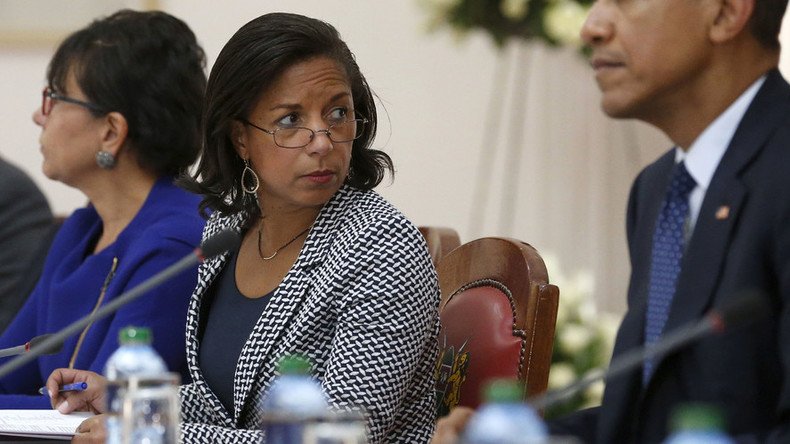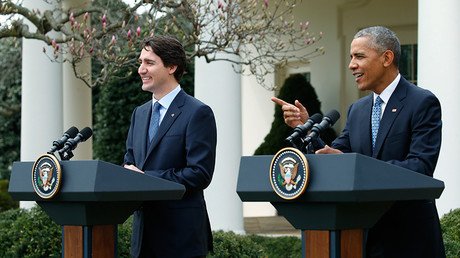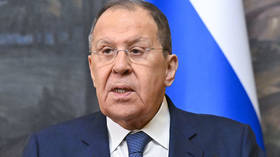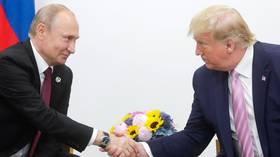'US trade deals have cost America 5 million manufacturing jobs since 2000'

President Obama is pushing for TPP as part of his legacy, despite the fact than many economists say the deal will result in the loss of manufacturing jobs, the Alliance for American Manufacturing’s Scott Paul told RT’s Ed Schultz.
National Security Advisor Susan Rice said Wednesday President Obama is fully committed to the ratification of the Trans-Pacific Partnership [TPP], despite predictions the deal would further erode America’s manufacturing base.
Obama stands against the majority of Democrats on the issue - including two Democrat presidential candidates Bernie Sanders and Hillary Clinton.
RT: Why is the President so adamant when he knows that most of his party doesn’t like it, and two presidential candidates from his party don’t want it? Even Donald Trump is against it?
Scott Paul: That is a good question. I struggle with that every day trying to figure out what the benefit is to the presidency. What I can gather is that he views it as a part of his legacy, as part of the Obama legacy - much like the Affordable Care Act, or diplomatic relations with Cuba. Even though the study the administration uses predicts it is going to lose manufacturing jobs, he continues to move forward.
He moves forward even though Mitch McConnell says the votes aren’t there in the Senate. Mitch McConnell is a supporter of this act, as you know. So it is a little bit mystifying to me as to why the President would continue to press it so forcefully, when the party leadership or the next party leadership – Hillary Clinton, Bernie Sanders – both say: “No go on this!”
RT: Scott, put numbers to this, how decimating have recent trade agreements been to the manufacturing sector?
SP: We’ve lost a third of our manufacturing jobs: 60,000 manufacturing facilities closed down, and a third of all our manufacturing jobs – over 5 million – from 2000 to just this year. And the challenge has been a lot of those jobs weren’t lost because of robots or technology. It was trade deals – like NAFTA, and with China – they caused all of that. The TPP just isn’t fundamentally different from a NAFTA. And there are more economists who think this is the case. I hear it every day.
RT: Where does President Obama think the big gains are going to be? In other sectors of the economy?
SP: I think there are a couple things that the President thinks this would help with. I think it is misguided, but I think his point of view is that this will help with our service sector; and it will help with diplomatic relations; and that it would help to contain China economically or allow us to write the rules.
RT: Congress can still stop this deal, they could vote in the Senate. You’ve got two Democratic candidates who are on record against it, Trump is against it. Why wouldn’t Clinton and Sanders lobby fellow Democrats and the Senate to defeat it if they both don’t want it?
SP: I think it would make a lot of sense. You often see this at the end of campaigns when senators come back and take key votes on issues. This has happened in a lot of different elections. If the President continues to push this, I don’t know how much of a push that Clinton with Sanders would have to give to defeat it, because it sounds like the votes aren’t there right now. But rather than just being a talking point for Clinton, for instance, it would certainly lend credibility to the fact that she is really opposed to this - as we know, Senator Sanders is - if she were to actually put some shoe leather behind some of the words she gives on the stump.
RT: If they were to go to Obama and say: “Look, we’re going to do our own trade deal,” there might be some political card there to play. And the more the American people hear about this, the more they don’t like it, correct?
SP: Right. I don’t want to underestimate or understate the economic significance of the TPP. When you look at the major problems we have in our country today economically – widening inequality; a hollowed out middle class; people living pay check to pay check – a big part of that has been globalization and the trade deals that led us to this point. And the TPP would dramatically expand it. Why we don’t put a pause on and think about doing it differently? I don’t know.
The statements, views and opinions expressed in this column are solely those of the author and do not necessarily represent those of RT.














